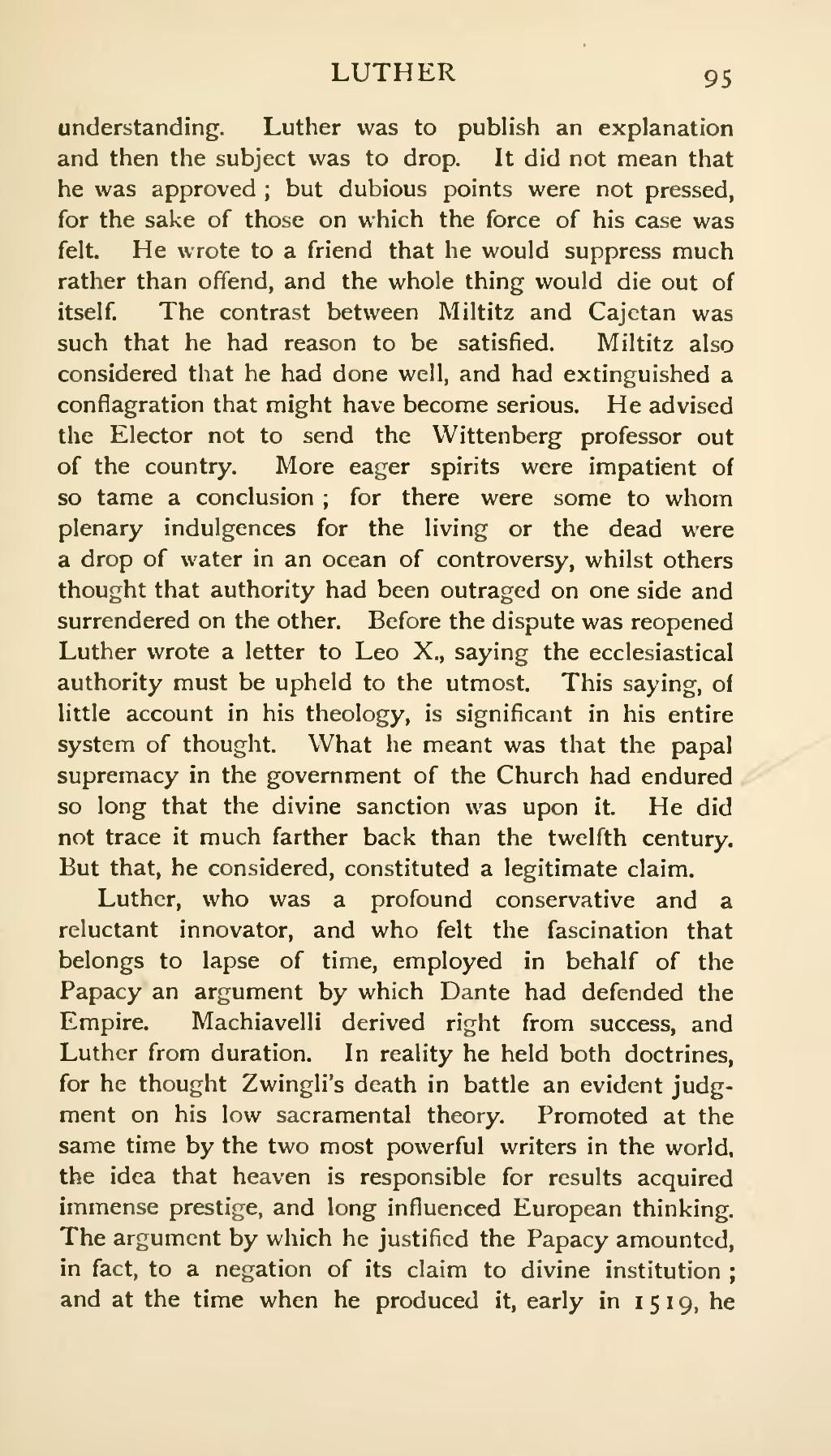understanding. Luther was to publish an explanation and then the subject was to drop. It did not mean that he was approved; but dubious points were not pressed, for the sake of those on which the force of his case was felt. He wrote to a friend that he would suppress much rather than offend, and the whole thing would die out of itself. The contrast between Miltitz and Cajetan was such that he had reason to be satisfied. Miltitz also considered that he had done well, and had extinguished a conflagration that might have become serious. He advised the Elector not to send the Wittenberg professor out of the country. More eager spirits were impatient of so tame a conclusion; for there were some to whom plenary indulgences for the living or the dead were a drop of water in an ocean of controversy, whilst others thought that authority had been outraged on one side and surrendered on the other. Before the dispute was reopened Luther wrote a letter to Leo X., saying the ecclesiastical authority must be upheld to the utmost. This saying, of little account in his theology, is significant in his entire system of thought. What he meant was that the papal supremacy in the government of the Church had endured so long that the divine sanction was upon it. He did not trace it much farther back than the twelfth century. But that, he considered, constituted a legitimate claim.
Luther, who was a profound conservative and a reluctant innovator, and who felt the fascination that belongs to lapse of time, employed in behalf of the Papacy an argument by which Dante had defended the Empire. Machiavelli derived right from success, and Luther from duration. In reality he held both doctrines, for he thought Zwingli's death in battle an evident judgment on his low sacramental theory. Promoted at the same time by the two most powerful writers in the world, the idea that heaven is responsible for results acquired immense prestige, and long influenced European thinking. The argument by which he justified the Papacy amounted, in fact, to a negation of its claim to divine institution; and at the time when he produced it, early in 1519, he
